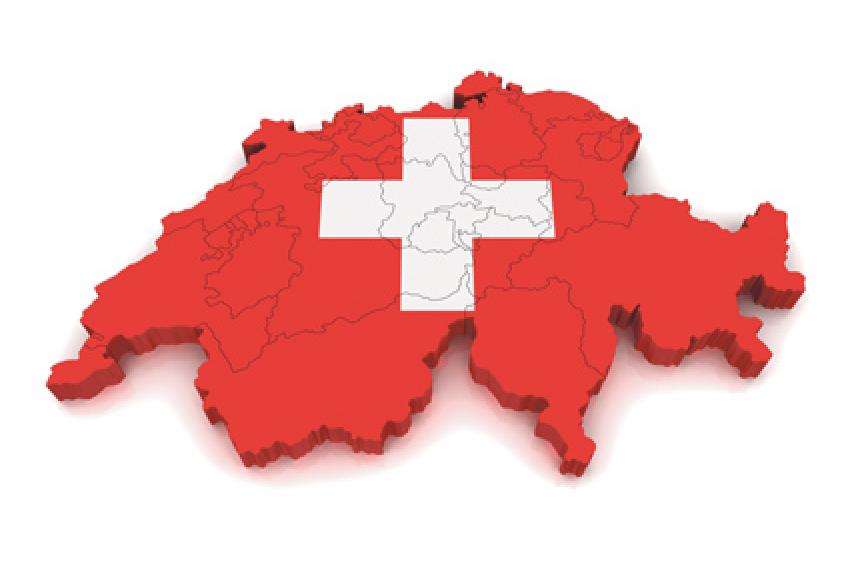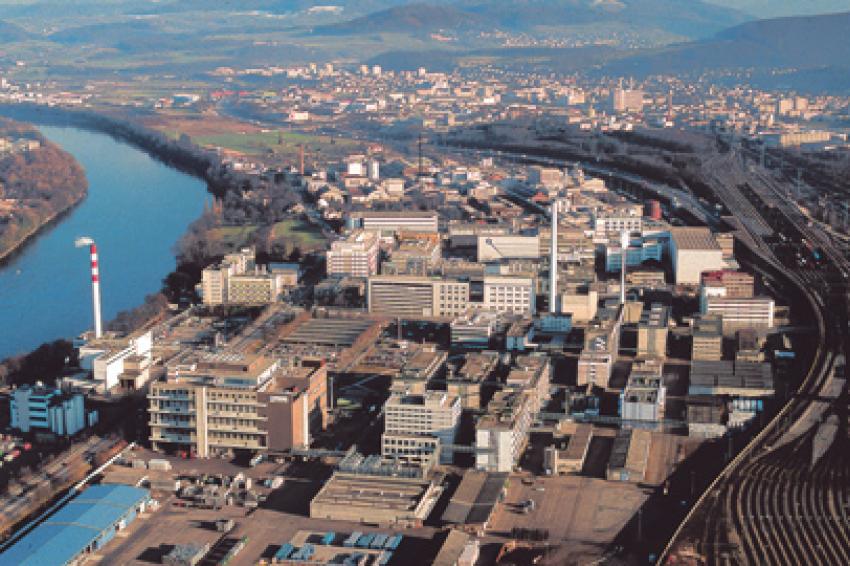Innovation as a Recipe for Success
With its Strategy of Specialization, Switzerland is Holding its Own in International Competition
Banking on Life Sciences - Swiss science-based industries feature highly specialized products, in particular from the field of pharmaceuticals, which are mainly exported to the EU. However, other regions of the world are rapidly gaining importance and presenting the Swiss chemical, pharmaceutical and biotechnology industries with new challenges.
For many years, Germany has been the world's largest exporter of chemical and pharmaceutical products, with a global export share of 11.7%. China is in fourth place with a share of 5.4%, and while Switzerland is comparatively small, it is in seventh place with a share of 4.7%. However, there are significant differences between the Swiss chemical, pharmaceutical and biotechnology industries and the corresponding industries in other exporting countries such as Germany or China. For decades, the Swiss science industries have focused on developing and marketing high-quality, innovative products, primarily in the field of life sciences. Other countries mainly export traditional high-volume intermediate and final chemical products.
With its strategy of specialization, Switzerland is able to hold its own to a better-than-average extent in comparison with other exporting countries. In a country that heavily depends on exports, the strong Swiss Franc also reminds Switzerland that it is not an island and cannot escape global developments.
New Export Markets
Science-based companies earn about 98% of their sales income abroad; and with more than 36% of all Swiss exports, they are the largest export industry in Switzerland. With a share of 57.2%, the EU was one of the most important customers of the Swiss science industries in 2011, with an export volume of 42.7 billion Swiss Francs. However, compared with the previous year, exports to the EU dropped 2.3%. Within Europe, Germany remains the most important buyer country for our industry, with a share of 15%. Switzerland, which earns nearly every second Franc abroad, has cause for concern because in the first six months of 2012, in particular foreign trade with the EU declined noticeably in both directions. In a weakening global economy, Swiss exports stagnated in the first six months of 2012. In view of the continuing debt crises, it cannot be assumed that Europe will quickly recover from the economic downturn. This means that in the future there will be hardly any growth directly on our doorstep. In the longer term, the BRIC countries Brazil, Russia, India and China will probably become more important as export markets.
Industry Benefits from Emerging Regions
A small country such as Switzerland can also benefit from open global markets, as there is an enormous potential outside of Europe. China alone has a domestic market of more than 1.3 billion people, whose continuously increasing affluence is giving rise to new demands and therefore new opportunities for growth. Switzerland is negotiating with China with regard to a free trade agreement. Our industry benefits greatly from the economic growth in China, as our member companies could increase their exports to China and also obtain many intermediate products from there. In 2011 the science industries exported goods worth about 1.4 billion Swiss Francs to China. In addition, Switzerland is one of the few countries with an export surplus to China - in contrast to the United States. Because science industry products such as medicines are considerably more complex to develop and manufacture than traditional chemical products, the science industries are heavily dependent on a robust and enforceable global protection of their intellectual property. As China has been increasingly investing in research and development for some time, there is a real hope that in its own interest, it will place more importance on the protection of intellectual property rights.
Highly Specialized Products Defy the Strength of the Franc
The recipe for the success of our industry is a consistent, research-based innovation strategy, which repeatedly produces new, highly specialized products with impressive benefits to customers. Because of the highly specialized nature of science industry products, competitors can rarely replace these products. For this reason Switzerland‘s largest export industry is able to prevail relatively well in the global market, even in times of a continuing strong Franc. The science industries have demonstrated a mindset of continuous innovation for decades. In Switzerland, chemical, pharmaceutical and biotechnology companies contribute 44% to the total expenditure on research and development. Almost every second private Franc for private research comes from our industry. Last year this was considerably more than 7 billion Swiss Francs, which is an increase of 63% compared with 2003. This demonstrates the continuing importance of local research for our globally active industry.
The fact that only 2% of the global sales of our industry are made in Switzerland puts pressure on our industry, as the proximity of research and development to the sales markets is an important criterion for investment decisions. There is increasing pressure to relocate investments in research and production abroad. This also includes the efforts of various governments to attract high quality activities and workplaces and therefore the creation of the associated know-how and intellectual property in their own countries. Often this is not just limited to incentives. To some extent companies are more or less explicitly required to make investments in the relevant countries if they wish to retain their "license to operate."
The pressure to relocate abroad will increase because of the continuing strength of the Franc, the global pressure on drug prices and the imminent increase in production costs due to higher energy and environmental costs in Switzerland.
Attracting the World‘s Best Talents
In Switzerland, the chemical and pharmaceutical industry employed about 65,000 people in 2011. Over the past 20 years, the number of employees in the science industries has remained stable, apart from slight fluctuations. Even now, about 55% of employees in the industry come from abroad. This trend will continue, as Switzerland does not educate enough highly qualified people, especially in the field of MINT (mathematics, IT, natural sciences, technology). Because of this, our industry depends on recruitment from abroad, especially the EU region, but also from countries such as the U.S., Japan, China and India. Therefore the free movement of employees in the EU as well as an efficient contingent system that allows highly qualified employees from throughout the world is of great importance to the science industries. However, recruiting personnel is difficult, as of course other industrial countries are also striving to obtain the world‘s best talent. In addition to good economic conditions, Switzerland also requires the good integration of highly qualified employees and their families in Switzerland.
Kontakt
Scienceindustries - Wirtschaftsverband Chemie Pharma Life Sciences
Nordstr. 15
8021 Zürich
Schweiz
+41/44/3681711
+41/44/3681710














